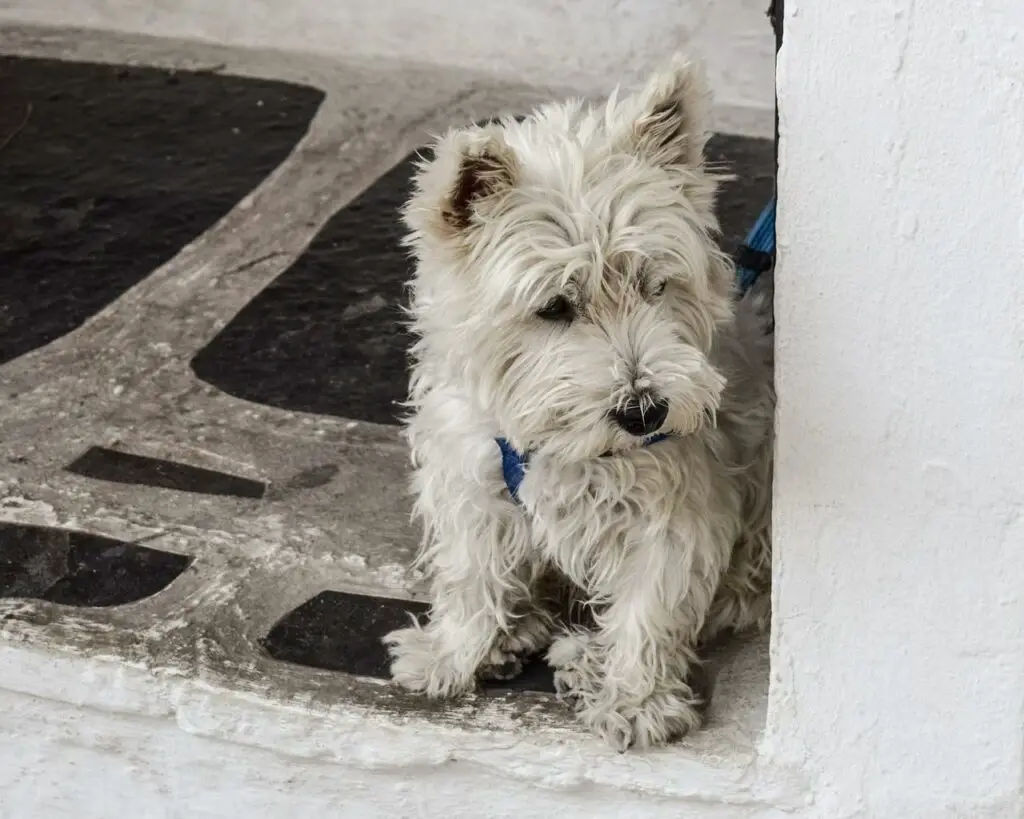You may have heard a variety of misconceptions about what is and isn’t appropriate for nursing dogs.
Well, it’s true that a mother’s diet can directly affect her milk and, as a result, her puppies.
As such, it’s important that she is eating a high-quality, nutritious diet, but does this include eggs?
So, are eggs good for nursing dogs?
Yes.
Eggs are a nutritious food with all the crucial nutrients a nursing dog needs.
They contain a high quantity of protein, healthy fats, vitamins (Vit A, B9 & E), selenium, calcium, and minerals (iron, potassium, phosphorus), all essential for the nursing dog plus her puppies.
These nutrients help replenish the dog’s energy, support the immune system, and help regenerate their tissues.
This article explains eggs and their significance for nursing dogs, how to provide them, and what to keep in mind.
Read on to learn more.

Significant benefits of eggs for nursing dogs
Nursing dogs need extra calories and nutrients to support their milk production, so they will benefit from eggs to supply these.
These nutrients are also important for their puppies, who need the energy to grow, and cell development.
Eating eggs is a good way for nursing dogs to get all the necessary nutrients.
By eating eggs, the nursing dog will benefit in the following ways:
Help regenerate their tissues
After delivery, nursing dogs need help regenerating their tissues damaged during pregnancy and giving birth.
The proteins and calcium provided by the eggs will help in cell generation, building tissues, and maintaining bones.
Amino acids are essential for nursing dogs to build muscles and support the body in making neurotransmitters, chemicals needed for cell communication.
Aids in milk production
Nursing dogs need extra calories to produce milk for their puppies.
The fats in the egg yolks are a good source of energy for lactating dogs and help them make rich milk.
Vitamins A & E in eggs also help with milk production by keeping the mammary glands functioning properly.
Supports the dog’s immune system
Nursing dogs are especially susceptible to infections because their immune system has been weakened from pregnancy and delivery.
The selenium found in eggs is a powerful antioxidant that helps to protect cells from damage.
It also helps the nursing dog’s body to produce antibodies that fight off infection.
Eggs are also a good source of vitamin A, B9, and E.
Vitamin A helps keep the mucous membranes healthy, a barrier against infection, whereas vitamin B takes part in producing red blood cells and supports the nervous system.
The antioxidant – Vitamin E helps to protect cells from damage.
Regulate the dog’s blood pressure and fluid balance
The yolk of the egg contains lecithin, which helps to emulsify fats and cholesterol in the body, preventing them from being deposited in arteries.
This action can help regulate blood pressure and fluid balance in the nursing dog’s body.
Helps with puppy nourishment
Puppies need a lot of energy and nutrients to grow.
Eggs are a good source of protein, healthy fats, vitamins, minerals, and antioxidants, which help with puppy development.
Nutrients in eggs (and other foods) nourish the colostrum milk the nursing dog provides their puppies.
This, therefore, helps ensure that puppies get the nutrition they need to grow and develop properly.

How to feed your nursing dog eggs
When feeding eggs to nursing dogs, give them as part of a balanced diet and not the only source of protein.
This means that you only provide moderately, as you give them other healthy foods to constitute their balanced diets.
When feeding your nursing dog, follow these guidelines for a safe approach:
Cook your nursing dog’s eggs
While raw eggs are considered nutritious and dogs can eat, feeding them these is not recommended.
Always cook the eggs you feed your nursing dog.
Cooking is vital to kill all bacteria and parasites which can make your dog sick.
Cook the eggs by boiling, steaming, or poaching them.
You can also cook them sunny-side up with the yolk runny.
Do not fry the eggs as this adds unhealthy fats.
Avoid adding salt, pepper, butter, or oil when cooking.
You should also avoid adding toxic ingredients such as garlic and onions, which will harm your dog.
You can scramble your nursing dog’s eggs.
Scrambled eggs are a safe and easy way to start feeding your nursing dog cooked eggs.
Add the egg to your nursing dog’s food
Add cooked eggs to your nursing dog’s regular food.
Mix it in their kibble or wet food, or serve it as a treat.
Start by adding a small amount of cooked egg to their food and then gradually increase the amount based on their tolerance.
Avoid giving your nursing dog pickled eggs, especially those preserved in vinegar.
The vinegar is acidic and can cause an upset stomach in dogs.
Smash the egg-shells if you feed them to your nursing dog
Eggshells are a good source of calcium.
If you want to add them to your nursing dog’s diet, smash them first.
Large pieces of eggshells can cause digestive upset and blockages.
They can also damage your dog’s mouth and linings by causing cuts.
You can use mortar with a pestle or rolling pin to smash the shells into small pieces.
Once you have the right consistency, sprinkle them over your nursing dog’s food.
Are there risks to giving nursing dogs eggs?
While eggs are good for nursing dogs, there are some risks: Risk of salmonella poisoning, Allergies, Intolerance.
- What Dog Breeds Have Pink Skin? - March 24, 2023
- What Are the Most Inspiring Dog Breeding Quotes? - March 20, 2023
- Can Pheromone Spray Help Improve Dog Breeding Results? - March 19, 2023








